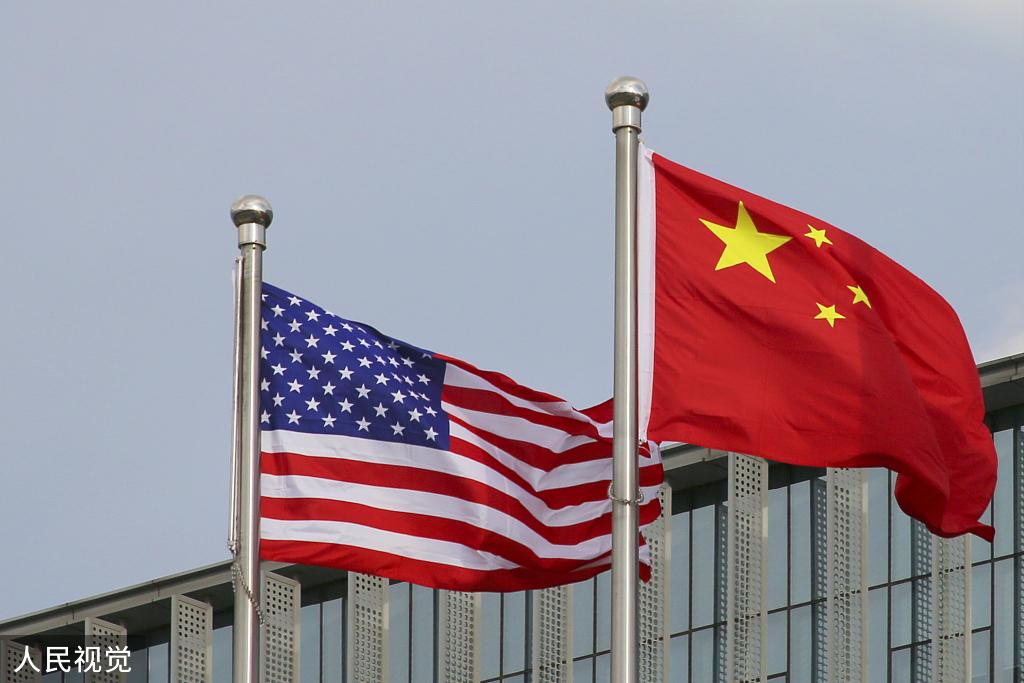Yellen's China trip highlights economic guardrails
- By Hannan R. Hussain
 0 Comment(s)
0 Comment(s) Print
Print E-mail China.org.cn, July 12, 2023
E-mail China.org.cn, July 12, 2023

[Photo/VCG]
U.S. Treasury Secretary Janet Yellen recently concluded her four-day trip to China, where she held direct, substantive, and productive talks with senior Chinese officials. Important insights on strengthening communication channels, and supporting concrete U.S. actions on key sanctions and irritants, underline the strategic value of Yellen's trip to building a consequential U.S.-China economic relationship. "We had substantive conversations about the global economy, developments in our own economies, financial markets, and a list of concerns that each of us brought to the table that we agreed to follow up on over time," Yellen recently said during a "Face the Nation" interview.
The landmark visit was her first as Treasury Chief, and widely seen as an attempt to set up economic guardrails and improve the countries' relationship after an historic low. Cautious optimism stemmed from Yellen's talks with Chinese Premier Li Qiang, who rightly recommended healthy cooperation as a "realistic need and the right choice" for two of the world's largest economies. In a bid to maintain a level playing field for businesses, the trip merits some hope against unwarranted U.S. export controls and sanctions. Headway there is critical for the U.S. to advance "mutual respect, peaceful coexistence, and win-win cooperation."
It is true that China's peaceful development is a "gain rather than a risk" for the United States. These remarks from Premier Li offered strong incentives for Washington to recalibrate its perceptions towards China and support future common-ground in areas such as global financial stability, macroeconomic coordination, and debt crisis. Yellen's refusal to endorse zero-sum talks about "de-coupling" is also a welcome step forward, making it easier to implement the core consensus reached between the two countries in Bali last year.
That landmark consensus also included continuation of dialogue, as well as coordination on macroeconomic policies and trade ties. For these reasons, Yellen's up-close engagement with Chinese officials and the larger business community reflects active efforts to implement those understandings, and coordinate differences where possible. "China hopes that the U.S. can meet China halfway and bring bilateral relations back on the right path, guided by reason and pragmatism," stated Li in his exchange with Yellen.
Extensive talks with Chinese Vice Premier He Lifeng also reveal an opening for the U.S. to work together to tap considerable growth in trade and investment engagements. After all, in the past two years alone, U.S.-China trade volume has steadily expanded, reaching $690 billion last year. To build on future progress, it is in the U.S.'s interests to avoid "overstretching the concept of security" on such cooperation and support international expectations for healthy and consistent U.S.-China economic engagements.
Interestingly, Yellen's visit is also a significant step toward reducing the risk of misunderstanding between both sides. For one, it provides an opening for Washington to respond to China's major economic concerns, including lifting tariffs and relaxing export controls, while advancing more frequent contacts in the future. China has been a staunch advocate of direct communication channels with Washington, and puts a premium on trust-building based on a "rational and pragmatic" attitude. There is a fair chance that Washington may build on Yellen's goodwill, given her admission that she does not see ties through the frame of "great power conflict."
Ultimately, Yellen's four-day trip to China should be seen as an important confidence-building measure and a much-needed input to strengthening direct Sino-U.S. communication. From macroeconomy to challenging global issues, critical discussions reinforced the wide-ranging common ground between both countries. By addressing China's stated economic concerns, the Biden administration stands a fair chance to advance bilateral trust and meet Beijing halfway for the benefit of U.S.-China relations.
Hannan R. Hussain is a foreign affairs commentator, author and recipient of the Fulbright Award.
Opinion articles reflect the views of their authors, not necessarily those of China.org.cn.





